The Human Affectome Project will draw
on an esteemed advisory board
_

Adam Anderson, PhD
Associate Professor of Psychology and Co-Director of the Affect and Cognition Lab at Cornell University. The Affect & Cognition Lab (ACL) is an interdisciplinary research group focusing on the psychological and neural foundations of emotion and cognition. The team employs a variety of methodological approaches including functional magnetic resonance imaging (fMRI), peripheral psychophysiology, computational modeling, and rat models to investigate how the brain gives rise to complex mental events, such as emotions, attention, learning and memory

Andrew Kemp, PhD
Associate Professor of Psychology at Swansea University. Dr Kemp's research spans affective neuroscience through to epidemiology, bridging the gap between biological mechanism and long term public health. His program of research aims to better understand the relationship between mental and physical wellbeing, and involves a multi-pronged research strategy including focused hypothesis driven experimentation, meta-analysis and epidemiological study. His work makes use of a variety of techniques including EEG, ERP, ECG, fMRI and genetics, and involves studies on healthy participants and individuals with mood and anxiety disorders. Major programs of research include 1) the neuropsychobiological correlates and impacts of treatments (e.g. antidepressants, oxytocin) on emotion processing and its regulation, 2) mechanisms underpinning the link between emotion, physical health and longevity, and 3) the prediction of treatment response in the mood and anxiety disorders

Antonio Damasio MD, PhD
David Dornsife Professor of Neuroscience, Psychology and Philosophy, and Director of the Brain and Creativity Institute at the University of Southern California, Los Angeles. Trained as both neurologist and neuroscientist, Damasio has made seminal contributions to the understanding of brain processes underlying emotions, feelings, and consciousness. His work on the role of affect in the process of decision-making has made a major impact in neuroscience and psychology and has been distinguished with the Grawemeyer Award, 2014 and the Honda Prize, 2010, among others. He is the author of numerous scientific articles and has been named "Highly Cited Researcher" by the Institute for Scientific Information. The recipient of many prizes (among them the Asturias Prize in Science and Technology [2005], the Nonino Prize, and the Signoret [2004] and Pessoa [1992] Prizes, which he shared with his wife Hanna Damasio), Damasio is a member of the Institute of Medicine of the National Academy of Sciences and a Fellow of the American Academy of Arts and Sciences, the Bavarian Academy of Sciences, and the European Academy of Sciences and Arts, among others. He holds Honorary Doctorates from several leading Universities, some shared with his wife (the Ecole Polytechnique Federale de Lausanne [EPFL], 2011 and the Sorbonne [Universite Paris Descartes], 2015). Damasio has discussed his research in his books, Descartes' Error, The Feeling of What Happens, Looking for Spinoza and Self Comes to Mind, which are translated worldwide and taught in many universities. For more information go to the Brain and Creativity Institute (http://www.usc.edu/bci)
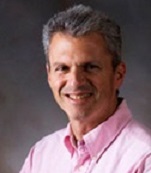
Bruce H. Friedman, PhD
Associate Professor of Psychology and Director of The Mind-Body Lab at Virginia Tech. Current research uses psychophysiological methods to explore the mind-body relationship. Dr. Friedman's work is primarily focused on the relationships among affective phenomena, personality, and autonomic nervous system activity. Some specific topics of interest include anxiety, worry, stress, and hostility in relation to cardiovascular activity, autonomic specificity of emotion, and self-regulation and autonomic response patterns. The Mind-Body Lab's research is both basic and applied in nature and spans the domains of psychophysiology and behavioral/psychosomatic medicine. Non-invasive psychophysiological measures are used, such as heart rate variability, impedance cardiography, and blood pressure.

Catherine L. Caldwell-Harris, PhD
Associate Professor at Boston University, directs the Psycholinguistics Laboratory in the Department of Psychological and Brain Sciences. She brings her cognitive science training (PhD, University of California San Diego, 1991) to a range of interdisciplinary questions. Foremost among these is the intersection between language and emotion. She has written extensively on how the emotional resonances elicited by language differ for bilinguals' native and foreign language, beginning with her seminal study demonstrating that skin conductance amplitudes were larger when bilingual speakers listened to emotional phrases in their native language compared to a foreign language. Her diverse investigations into the emotions associated with language include lying, responding to police interrogations, joking and evaluating trolley (and other) dilemmas. Dr. Caldwell-Harris' cross-cultural work in China investigated why American and Chinese cultures differ in frequency and comfort in expressing I love you. An ongoing theoretical project is to explain difficulties with foreign language learning in both childhood and adulthood as stemming from motivational factors, rather than to limitations in brain plasticity. Drawing on life-history theory from evolutionary psychology, Dr. Caldwell-Harris proposes opportunity costs of foreign language learning are prohibitive in adulthood in most situations. This theoretical framework also explains why children are poor second/foreign language learners outside of immersion settings.

Daniela Schiller, PhD
Associate Professor of Psychiatry and Neuroscience at the Icahn School of Medicine at Mount Sinai. Dr Schiller's lab is interested in discovering the neural mechanisms underlying emotional control and flexibility. Because the environment we live in is constantly changing, we need to continuously update our emotional responses. In extreme situations, when emotional memories become traumatic, we might even wish to 'erase' emotional memories altogether. Her research team uses neuroimaging, pharmacology and psychophysiology to understand the neural mechanisms that make such emotional flexibility. They examine emotional processing in the normal brain and in patients with anxiety disorders, and hope to promote new forms of treatment. Dr. Schiller is a Fulbright Fellow and a Kavli Frontiers of Science Fellow, and the recipient of the NYAS Blavatnik award for young Scientists and the Klingenstein-Simons Fellowship Award in the Neurosciences for her research about modifying fear memories.
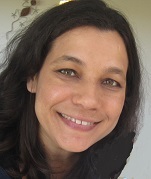
Edelyn Verona, PhD
Director of the Disinhibition and Affect Regulation (DARC) Lab in the Department of Psychology at the University of South Florida, in Tampa, Fl. Dr Verona's team is interested in applying affective science technologies to understanding the emotional deficits or excesses associated with externalizing and dysregulated traits and behaviors in adults and adolescents. Syndromes of interest include psychopathy, aggression, criminality, personality disorders (e.g., borderline, antisocial), impulsive suicide, and substance use. The main goal is to identify risk factors for these problems, and examine the biopsychological processes (genetics, stress/adversity, personality traits, and cognitive-affective processing) that mediate risk.
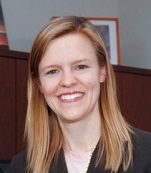
Elizabeth Kensinger, PhD
Director of the Cognitive and Affective Neuroscience Laboratory and Professor of Psychology at Boston College. Dr. Kensinger's research aims to elucidate how emotion affects the processes that give rise to episodic memory. Her laboratory investigates the effects of emotion on all phases of memory (learning, storage, retrieval) and examines how the effects of emotion may change over the adult lifespan.

Eve De Rosa, PhD
Associate Professor of Psychology and Co-Director of the Affect and Cognition Lab at Cornell University. Thus far, the field of cognitive neuroscience has primarily focused on the neuroanatomy of attention and learning. Dr De Rosa's team also considers the neurochemistry of these cognitive processes. Specifically, they examine the contributions of the cholinergic basal forebrain, the major source of the neurochemical acetylcholine to the hippocampus and cerebral cortex, to normal cognition. In rats, they employ pharmacological and cholinergic immunotoxic lesioning techniques. And in humans, they employ behavioural and functional magnetic resonance imaging (fMRI) techniques in populations associated with cholinergic deficiency.

Heath A Demaree, PhD
Dr. Demaree is Director of the Affective Neuroscience Laboratory at Case Western Reserve University. The members of this laboratory are currently investigating how different cognitive variables, both trait (e.g., working memory capacity) and state (abstract/global versus concrete/local processing), influence people's automatic reactions to emotional stimuli (mostly "approach" emotions to appetitive stimuli), as well as their ability to control emotional responses. Reciprocally, he is also interested in how emotion regulation (e.g., reappraisal) alters people's automatic motivational responses to emotional (mostly appetitive) stimuli and global/local focus.
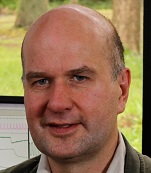
Hugo Critchley, DPhil, FRCPsych
Chair in Psychiatry & Co-Director of the Sackler Centre for Consciousness Science at Brighton and Sussex Medical School (BSMS) and University of Sussex. Dr Critchley trained in Physiology and Medicine in the University of Liverpool and received his doctorate in Psychological Studies at the University of Oxford. He undertook specialist training in psychiatry at Institute of Psychiatry and Institute of Neurology, in parallel with research fellowships including a Wellcome Trust Senior Research Fellow in Clinical Science, awarded 2004. He was a principal investigator at the Wellcome Department of Imaging Neuroscience, UCL Institute of Neurology and group leader at the UCL Institute of Cognitive Neuroscience. Now his research at BSMS focusses on psychological medicine, biological psychiatry and neuropsychiatry. His research programme examines brain-body interactions, combining human neuroimaging with physiological monitoring and patient studies. The research addresses central autonomic control and interoception relevant to emotion
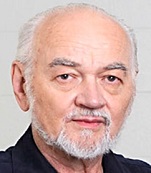
Jaak Panksepp, PhD
In Memoriam - Dr. Jaak Panksepp passed away April 18 2017. Jaak was an enthusiastic advisor and contributor who took great interest in the Human Affectome Project. His intellect, insights, and collaborative spirit will all be greatly missed. At the time of his passing, Jaak was Baily Endowed Chair of Animal Well-Being Science and Professor, Integrative Physiology and Neuroscience (IPN), Washington State University and Head, Affective Neuroscience Research, Falk Center for Molecular Therapeutics, Northwestern University. His research was devoted to the analysis of the neuroanatomical and neurochemical mechanisms of emotional behaviors (in the emerging fields of affective and social neurosciences), with a focus on understanding how various affective processes are evolutionarily organized in the brain, and looking for linkages to psychiatric disorders and drug addiction. He conducted research on brain "instinctual" mechanisms of fear, anger, separation distress (panic), investigatory processes and anticipatory eagerness, as well as rough-and-tumble play. His lab was especially interested in how various brain neuropeptide systems regulate emotional feelings and social bonds. Dr Panksepp's working assumption was that all of consciousness was built on affective value systems during the long course of brain evolution and his research orientation was that a detailed understanding of basic emotional systems at the neural level will highlight the basic sources of human values and the nature and genesis of emotional disorders in humans.
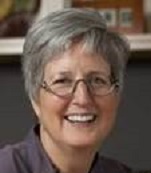
Jennifer Crocker, PhD
Principal Investigator of the Self and Social Motivation Laboratory, the Ohio State University. Dr. Crocker's team explores the consequences of interpersonal goals for learning, self-regulation, relationships, and mental and physical health. Using longitudinal, dyadic, experimental, and psychophysiological methods, the lab's research aims to understand how people inadvertently create what they don't want in their lives when they are driven by the ego or self-esteem concerns; and how shifting to a different framework focused on what they want to create, contribute, or learn can help people create what they and others want. Ultimately, the team hopes to use rigorous scientific methods to provide conceptual and practical tools that can help people clarify and accomplish their most inspired and inspiring goals, in a sustainable way that is good for others as well as the self. In doing so, we hope to help people become more healthy, constructive, and effective human beings, connected to their inner resources, to other people, and to their passion.

William D. Killgore, PhD
Professor of Psychiatry, Psychology, & Medical Imaging and Director of the SCAN Lab at the University of Arizona. Dr. Killgore is a clinical neuropsychologist whose research focuses on understanding the brain systems involved in emotional processes and cognitive performance. His work combines neurocognitive assessment with state-of-the-art neuroimaging methods to study the role of emotion in complex cognitive processes such as moral judgment, decision-making, and risk-taking. He is also interested in how these brain-behavior systems may be affected by environmental and lifestyle factors such as insufficient sleep, nutrition, light exposure, physical activity, and stimulants such as caffeine. In particular, Dr. Killgore has explored the role of sleep as a mediator of psychological and emotional health and the potential role of insufficient sleep as a contributor to psychiatric disturbance, emotional dysregulation, and risk-related behavior.